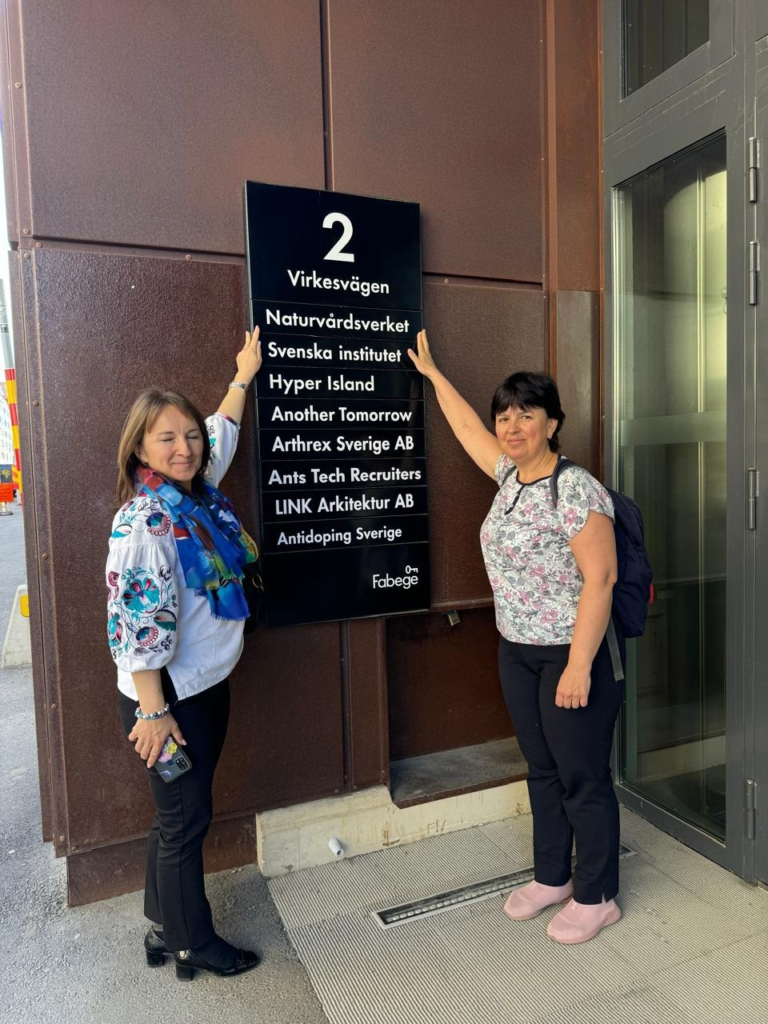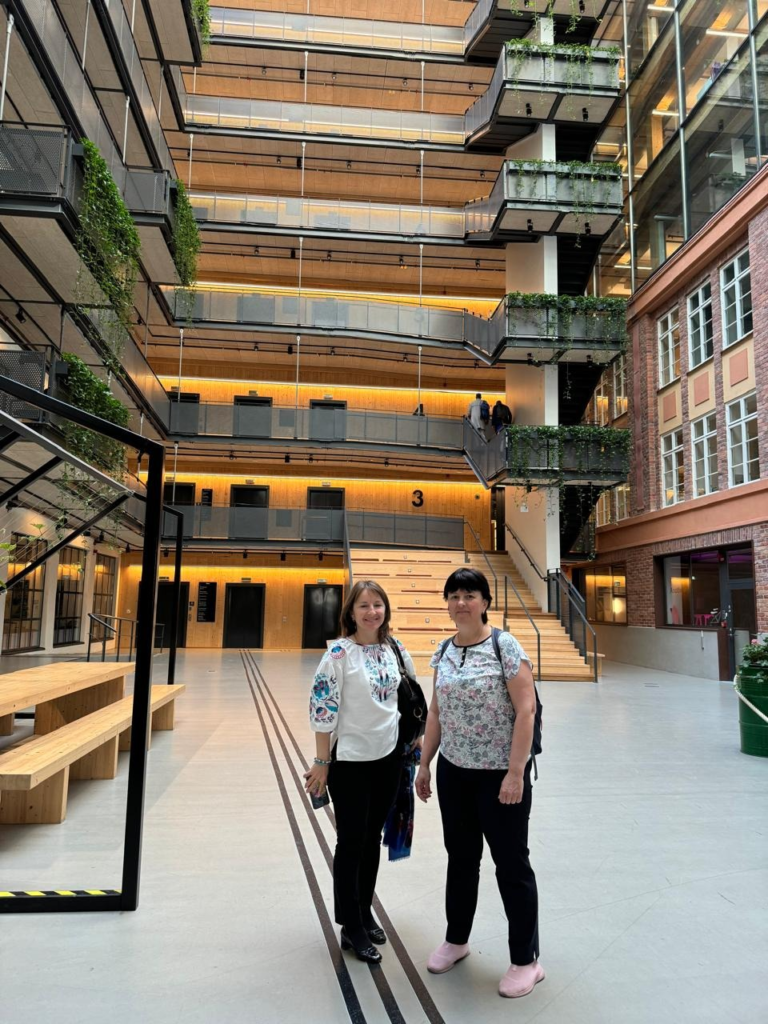EPL representatives met with staff of Swedish EPA in their beautiful and comfortable modern office in Stockholm, which confirms EPA’s commitments for climate neutrality and sustainability and innovations.
The Swedish Environmental Protection Agency conducts and coordinates Sweden’s environmental work. Together with many others, they work to preserve biodiversity, reduce climate impact and contribute to a resource-efficient society.
Firstly, we heard the framework and experience of environmental law enforcement in Sweden, and special department in SEPA is responsible for coordination of the work of local and regional inspectors. There are around 245 local inspectors working in the country at the level of municipality. Their work is supervised, evaluated and guided by 21 county administrative boards. The Environmental code of Sweden declares that operators or polluters are subject to self-monitoring, which limits the necessity of environmental inspectors to control them often. In case of accident or pollution the burden of proof rests on the operator, thus the operator has to prove that his activities where not violating of environmental norms. Inspectors might take samples and contract private laboratories to make analysis of air, water or soil.
The commercial activities are divided into A-B-C-U categories depending on the level of risk. Activities subject to IPPC permit are A and B activities, with A activities to be the most hazardous. Permits for B activities are issued by Environmental Assessment Boards, for A activities – by environmental courts and SEPA might be involved in permitting. For type C activities, the notification is needed, for the least dangerous type U activities, no notification is needed.
Environmental control is performed on the basis of risk to the environment, but inspection can be initiated on the complaint basis made by citizens or tips from other agencies, municipalities. There are announced or unannounced inspections. There are also general and detailed inspections (when inspector deepens into the activities, makes onsite checks and might take samples.
Inspectors should be allowed to make on-site checks, in case of refusal – the police has to facilitate access to premises or property of operators. Swedish type of decentralized environmental control has some advantages, such local and regional knowledge of environmental situation. The challenges are: variation of priorities of environmental inspectors, they have general knowledge, sometimes they are not specialists (environmental scientists, etc). Their employees (municipalities) decide individually on their professional requirements for holding the position of environmental inspector. Inspectors have numerous methodologies and web-sites with guidance for measures of environmental control. Regional Bords evaluate the work of local inspectors, and SEPA evaluates the effectiveness of inspectors on local and regional level, and determined what additional resources they need.
Now SEPA is focused on dealing with numerous environmental crimes which were made possible due to deficiencies in environmental control and enforcement, norms on legal responsibility for environmental violations, etc. The norms of Environmental Code (1999) are not efficient concerning self-monitoring of operators, thus control and enforcement have to be strengthened, with more effective environmental control on local level.
The resources of police are too weak during investigation of environmental crimes, as burden of proof in such cases rests on the side of state law and enforcement bodies. Due to adoption of changes to Environmental Crimes Directive, Sweden has to make punishment for environmental crimes more severe.
With hazardous waste management, Sweden has good system of traceability of hazardous waste operations, safe temporary storage of such waste under SEPA permit. The system of collection of hazardous waste at municipal level from households is organized by municipalities through recycling centres, mobile collection points and forms the chain of EPR scheme. Business entities producing hazardous waste have to take care of their waste independently, contract the company which will manage those waste safely.
SEPA is starting its involvement recently in the project in Ukraine dealing with waste management in the context of approximatization of EU aquis from Chapter 27 of the EU-UA Association Agreement. The beneficiary of the project – the Ministry of Environmental Protection of Ukraine. In addition, the Swedish chemical agency – KEMI- will participate in project aiding Ukraine in development of necessary legislation in the sphere of chemical mamangement.





